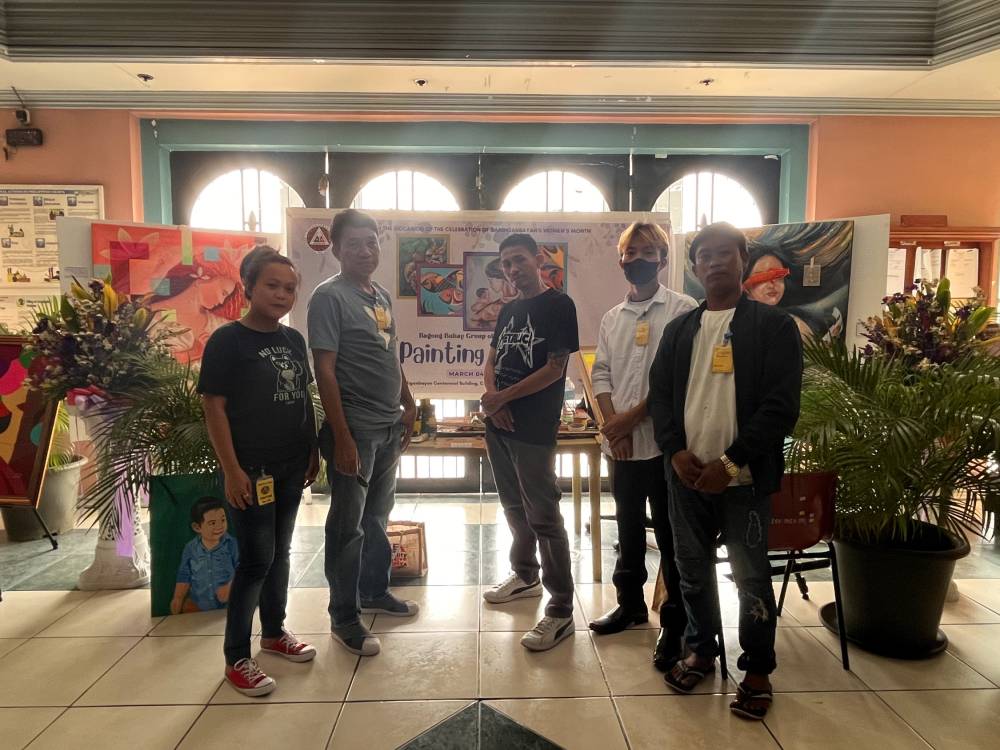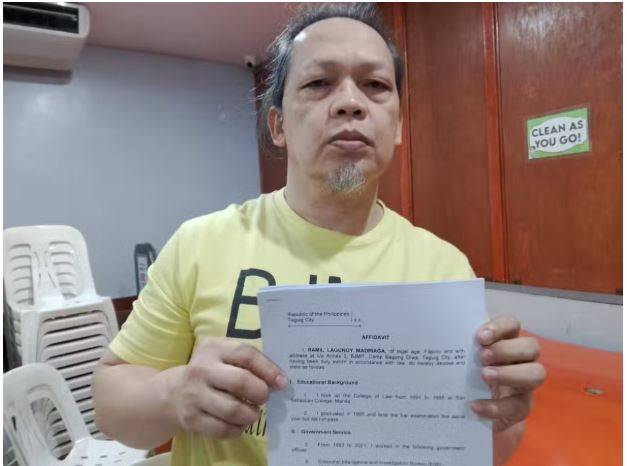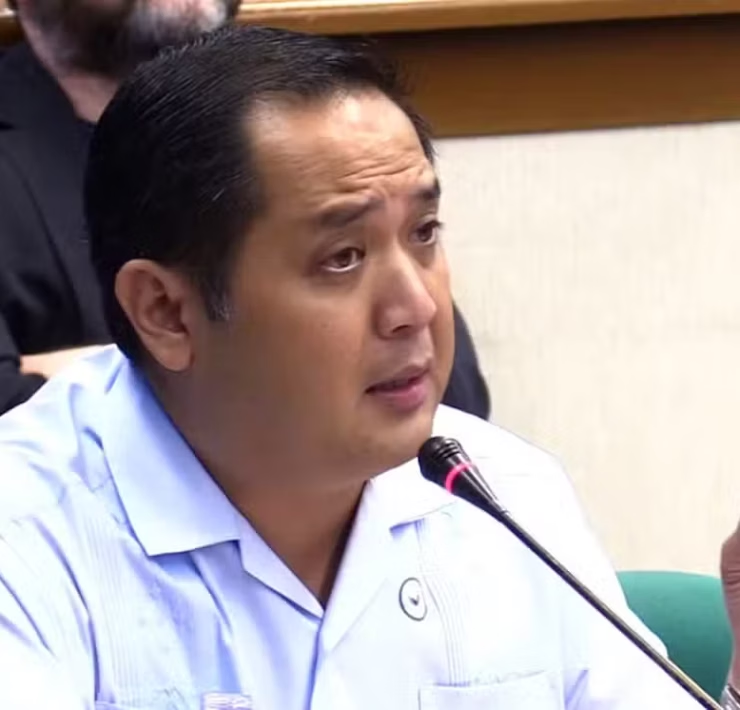The art of moving on: Ex-Bilibid inmates pay it forward

Former inmates aiming to reform their lives have turned to art—using their creative expression to overcome social stigma. The group has an ongoing show at the Sandiganbayan.
A group of former inmates with a common cause to reform their lives has turned to each other’s support—and to art—as they use their creative expression to overcome social stigma.
In time, the members of Bagongbuhay Group of Artists (Baga) have built a considerable body of work, such that even the Sandiganbayan has been convinced to lend its lobby space as a “venue” for their paintings.
“This has been our [means of] expression. It was hard inside NBP (New Bilibid Prison). Physically, you can endure it, but mentally, it’s really hard,” said 55-year-old Joey de Leon, the group’s founder.
“The stigma we face for being an ex-convict is still there even for me, [and I’ve] been out of prison for a long time already …. But we believe art could lift our spirits up and help develop our character,” said De Leon, who was released in 2008 after serving his 12-year sentence.
The offenses that the inmates had been involved in range from juvenile delinquency to robbery. But they have managed to turn their backs on that life after finding solace in art, he said.
Their new vocation was crucial especially after their release, as they adjusted to rehabilitation, he noted.
“People have different coping mechanisms,” De Leon said.
Eduardo Atuel, a cofounder of Baga, said it was through art that he found his “purpose in life.”
“When I tried making art inside [Bilibid], I saw it as something that could get me out of trouble. So I continued doing it until it became my source of happiness,” Atuel, 39, told the Inquirer.
His first few days out of prison in 2012 was not easy, he said, as he sensed discrimination when he tried to look for work.
“They (employers) think it’s hard to trust us …. It was really difficult to adjust to life outside prison. I was rejected all the time,” said the former juvenile delinquent.
With the support of other inmates, he decided to be a full-time artist. “When I’m painting, I don’t need to serve anyone but my art. So they can’t discriminate against me and my past,” Atuel said.
These artists became more productive at the height of the COVID-19 pandemic. That’s when they decided to form themselves into a group.
Baga’s formation would set in place their plans even while in prison—to hold regular exhibits and conduct art classes for children and teens in their communities, especially for other former inmates whom they wanted to help become productive members of society.
‘Halfway house’
De Leon’s home in Quezon City was turned into a “halfway house” not only for the members of Baga but also other excons like him.
“I tell the others that if you want to change and you have nowhere to go, you are welcome at the halfway house, even if you’re not an artist. We are not forcing anyone … Just tell us how you can contribute to the group,” De Leon said.
“We want to emphasize that their dark days are behind them already. With no postrehab, some have no idea what to do after imprisonment …. So they end up going back to their old ways and vices,” he added.
‘Inmate teacher’
Baga’s roots actually go back to the early 2000s, when De Leon was an “inmate teacher” at an alternative learning program introduced in NBP in 2005.
That’s when he met other inmates who were making art out of different materials at the “plaza” inside the NBP. These inmates would sometimes be provided art materials by their visitors. But most of the time they created art out of anything they picked up.
“During my break time, I would see them gathered under a talisay tree creating art. I became friends with them, we shared our love for art, until one day they asked me if I can form a group,” De Leon said, adding that he initially scoffed at the idea of being the one to lead that group.
“I told them, wait a minute, I’m not an artist, and art is far from my commerce degree. But they were really adamant about it, insisting that I was the educated one,” he said.
De Leon obtained his BS Commerce degree while in detention through an education program of the Bureau of Corrections (BuCor) in partnership with the University of Perpetual Help System in Las Piñas.
Eventually he agreed to be the group’s leader, on the condition that they make an advocacy of establishing an art school inside NBP.
“We should be grounded in purpose, or else we should just make and sell paintings on our own,” he recalled saying to his fellow inmates.
With BuCor’s approval, they were able to start an art school inside the medium security compound, before De Leon’s release.
Sunday art sessions
“It wasn’t easy,” he said, as he remembered their efforts to convince other inmates as well as prison authorities of the worthiness of their project. He also did the paperwork for the school, including its “by-laws.”
After the documentary requirements came another challenge. The inmates were allotted space for the art school, but they had to raise funds and buy their own construction materials for that project.
Ultimately, they found sponsors from such educational institutions as the University of Santo Tomas, De La Salle Lipa and La Salle Greenhills.
“We wrote to them and asked them whether they were interested in exhibiting our paintings. They then showed our works in their schools and returned the unsold pieces,” De Leon said.
Upon his release, he had to delegate his managerial duties in the art school.
Baga returns to NBP every month to hold an art class for around 15 to 20 students.
The group also helps communities outside the compound, conducting Sunday art sessions for youths age 10 to 14 in three barangays. Baga aims to reach out to more kids in a village in Montalban, Rizal, in the coming months.
Sandiganbayan, House
“We sometimes include our young students’ paintings in our exhibits, and 100 percent of the proceeds go to them,” said De Leon, adding that each of their art pieces get sold for around P1,000.
For the whole month of March, the Baga artists held their first exhibit as released inmates at the lobby of the Sandiganbayan’s Centennial Building
De Leon said they were surprised and thankful to be provided such a “venue” and supported by Sandiganbayan Presiding Justice Amparo Cabotaje-Tang.
The 49 paintings on display there range from P10,000 to P40,000, depending on their size.
De Leon said at least 16 pieces have been sold. According to him, their styles vary from “expressionism” to other forms of modern art.
Baga plans to hold another exhibit—this time at the House of Representatives—once they convince lawmakers to support them.
“We hope to sell more artworks, so we can help ourselves and others survive,” Atuel said. “That is really our group’s goal— to make a contribution to society—so that when we leave this world, we know we did something right.”





















